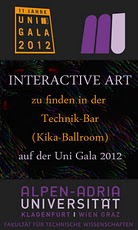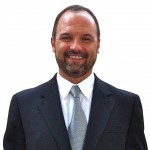Der Rückblick zum TEWI-Kolloquium von Oge Marques, Florida Atlantic University am 24.01.2012 beinhaltet die Videoaufzeichnung sowie die Folien:
Video
[iframe height=“350″ src=“http://video.aau.at/video.php?video=ftf_marques.mp4″]
Slides
Abstract
Mobile Visual Search (MVS) is a fascinating research field with many open challenges and opportunities which have the potential to impact the way we organize, annotate, and retrieve visual data (images and videos) using mobile devices. This talk is structured in four parts:
(i) MVS — opportunities: where I present recent and relevant numbers of the mobile computing market, particularly in the field of photography apps, social networks, and mobile search.
(ii) Basic concepts: where I explain the basic MVS pipeline and discuss the three main MVS scenarios and associated challenges.
(iii) Advanced technical details: where I explain technical aspects of feature extraction, indexing, descriptor matching, and geometric verification, discuss the state of the art in these fields, and comment on open problems and research opportunities.
(iv) Examples and applications: where I show recent and significant examples of academic research (e.g., Stanford Product Search System) and commercial apps (e.g., Google Goggles, oMoby, kooaba) in this field.




 With the growing amount of images, videos, and music, the task to support users in exploring multimedia databases is of ever-increasing importance. That is why numerous content-based browsing approaches have been developed. They support users in searching and browsing for multimedia objects in an interactive and playful way. In terms of query performance, however, these browsing approaches are frequently limited to small-to-moderate size databases. The question of how to efficiently browse large-scale multimedia databases yet remains to be answered.
With the growing amount of images, videos, and music, the task to support users in exploring multimedia databases is of ever-increasing importance. That is why numerous content-based browsing approaches have been developed. They support users in searching and browsing for multimedia objects in an interactive and playful way. In terms of query performance, however, these browsing approaches are frequently limited to small-to-moderate size databases. The question of how to efficiently browse large-scale multimedia databases yet remains to be answered.